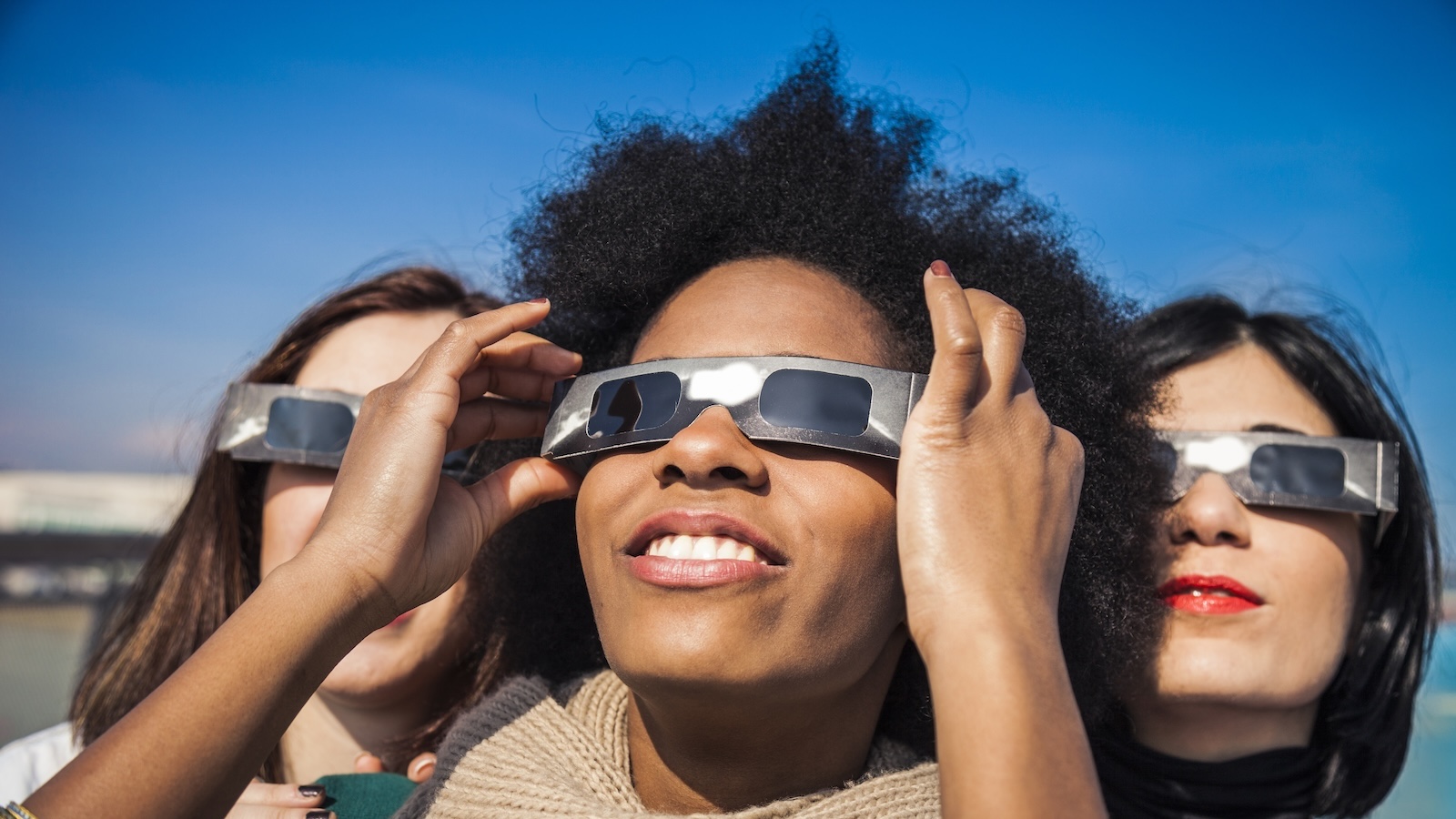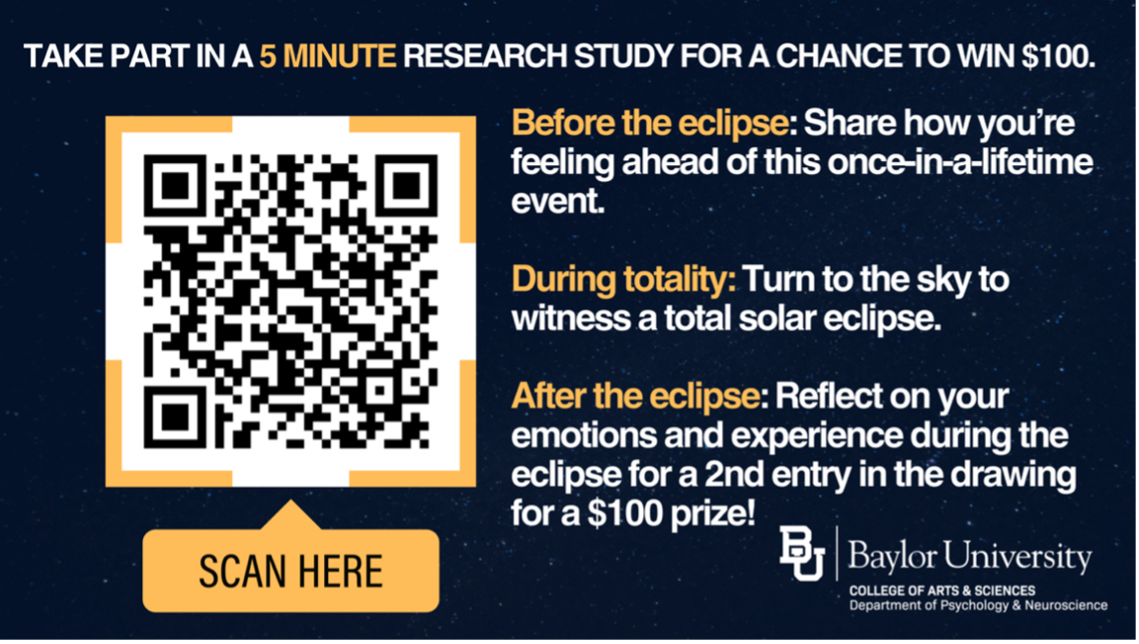Baylor Researchers to Study Psychological Effects of Experiencing a Total Solar Eclipse
Researchers use the total solar eclipse to study human experience of the rare astronomical event

(Getty Images: LeoPatrizi)
Contact: Shelby Cefaratti-Bertin, Baylor University Media & Public Relations, 254-327-8012
Follow us on Twitter: @BaylorUMedia
WACO, Texas (April 4, 2024) – With Waco, Texas in the path of totality for the 2024 solar eclipse, Baylor University researchers have a first-hand opportunity to study the effects that people might feel as they witness this once-in-a-lifetime experience.
Wade Rowatt, Ph.D., interim chair and professor of psychology at Baylor, and Jo-Ann Tsang, Ph.D., associate professor of psychology and neuroscience, along with psychology students will be collecting data on individuals’ experiences before, during and after the total solar eclipse on April 8, 2024. They will use a combination of online surveys and in-lab experiments to better understand any emotional or psychological effects of the eclipse.
"This total solar eclipse presents a unique opportunity to study human experiences of an astronomical event,” Rowatt said. “We are really fortunate to be in the path of totality as it's a once-in-a-lifetime opportunity for many of us.”
The location of Baylor University offers a unique opportunity for researchers as Waco, Texas is one of the best places to view the 2024 total solar eclipse with over four minutes of totality. The University is joining the City of Waco, Lowell Observatory and the Discovery Channel to host Eclipse Over Waco, a day-long event of world-class educational opportunities that includes science talks, telescope viewing sessions and interactive activities. With more than 15,000 visitors expected to watch the eclipse together, the event offers prime participants for a major aspect of Rowatt and Tsang’s study, in addition to the expected 100,000 visitors to the greater Waco area.
“Who would have predicted the sun and moon could generate such a buzz?” Rowatt said. “Hopefully the skies are clear, but it will be an awe-inspiring event no matter the weather.”
In addition to visitors coming to watch, the researchers will recruit students from Baylor who are also observing the eclipse to investigate the effects of eclipse viewing. Surveys will be the primary tool used to understand how participants share details of their experiences. Results of the research will be shared later this year.
To participate in the brief online study about reactions to the eclipse, scan the QR code below or access the survey website.
For ideas on how to fully experience the eclipse, click here.
ABOUT BAYLOR UNIVERSITY
Baylor University is a private Christian University and a nationally ranked Research 1 institution. The University provides a vibrant campus community for more than 20,000 students by blending interdisciplinary research with an international reputation for educational excellence and a faculty commitment to teaching and scholarship. Chartered in 1845 by the Republic of Texas through the efforts of Baptist pioneers, Baylor is the oldest continually operating University in Texas. Located in Waco, Baylor welcomes students from all 50 states and more than 100 countries to study a broad range of
ABOUT THE COLLEGE OF ARTS & SCIENCES AT BAYLOR UNIVERSITY
The College of Arts & Sciences is Baylor University’s largest academic division, consisting of 25 academic departments in the sciences, humanities, fine arts and social sciences, as well as 11 academic centers and institutes. The more than 5,000 courses taught in the College span topics from art and theatre to religion, philosophy, sociology and the natural sciences. The College’s undergraduate Unified Core Curriculum, which routinely receives top grades in national assessments, emphasizes a liberal education characterized by critical thinking, communication, civic engagement and Christian commitment. Arts & Sciences faculty conduct research around the world, and research on the undergraduate and graduate level is prevalent throughout all disciplines. Visit the College of Arts & Sciences website.
